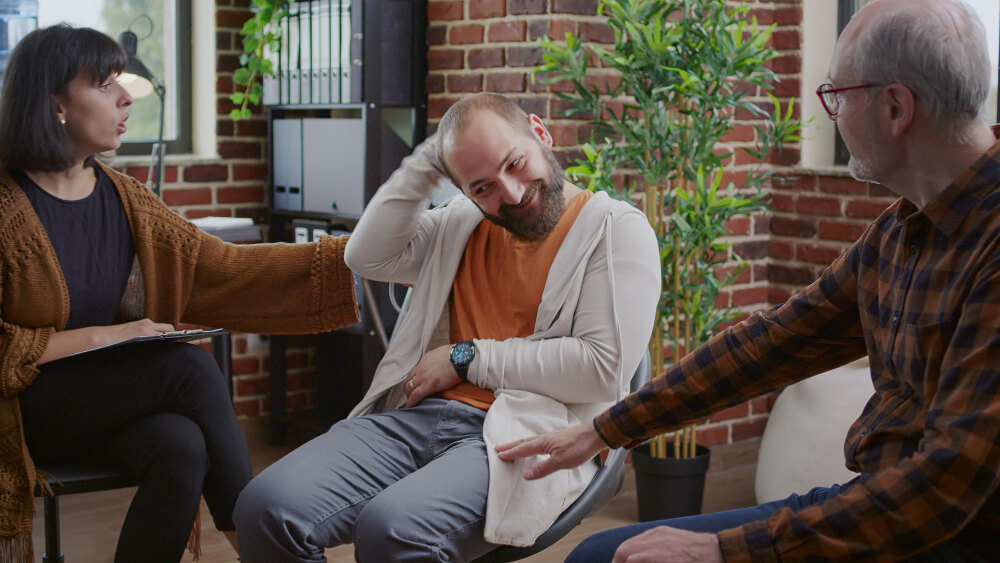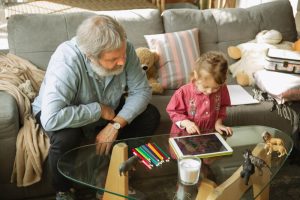Have you ever lost yourself in a daydream and encountered a prized, cherished, lifelong memory? Perhaps the exhilaration of your first bicycle ride or the comfort of a summer picnic. Incidentally, recalling the past might be a significant encounter and a compelling therapeutic strategy. Reminiscence therapy (RT), also known as life review therapy, is a type of talk therapy that helps clients recall significant life events.
More Than Just Looking Back: The Benefits of RT
This treatment is not just about giving way to wistfulness. Research shows that RT gives various advantages, especially for individuals who are encountering cognitive decline or mental debilitation. It has shown a guarantee in the treatment of dementia coming about because of Alzheimer’s, Parkinson’s, and Huntington’s sicknesses. Even those with memory loss unrelated to certain disorders may benefit from RT.
RT offers a unique set of benefits that extend beyond memory support. It has the remarkable ability to:
- RT has the power to transform behavior and mood: Rekindling delightful memories from the past can soothe individuals and uplift their spirits.
- Boost cognitive performance: Talking about the past activates the brain, which can help with memory and general cognitive function.
- Lessen the strain on caregivers: It can be difficult to be emotionally burdened by a loved one’s memory loss. RT can provide caregivers with skills to help them connect with their loved ones and a greater knowledge of the disease.
- Boost self-esteem and confidence: Thinking back on prior achievements and contributions helps reinforce one’s feeling of self worth.
- Reduce depression: Putting your attention on joyful recollections will help you fight off the depressive and lonely sensations that come with memory loss.
- Boost relationships with family members: Sharing memories helps people feel closer to one another and their families.
The How of Reminiscing: Unlocking Memories
Reconnecting people with their prior selves and the people that mean most to them is the main goal of RT. It can be especially helpful for elderly people who can feel disconnected from life as they age. RT accomplishes this by activating particular brain regions linked to long-term memory and cognition. A special brain response that can elicit emotions and memories is triggered while talking about and reviewing memories through sensory stimuli. Research has demonstrated that RT may boost involvement even in previously shied-away people.
In several formal and informal contexts, reminiscence therapy might be used to address the emotional toll of Dementia care. An example of RT is a quick trip down memory lane with a caregiver or a straightforward discussion about previous work with a spouse. In more controlled sessions, a therapist would use sensory aids such as:
- Items or instruments from the individual’s previous occupation
- Pictures taken at various phases of life
- Movie or music snippets from a certain era
- Textiles with recognizable textures
- Exact replicas of environments from the person’s childhood
These items serve as cues to bring up memories and a feeling of self. The therapist then leads the conversation and invites the patient to express any sentiments or ideas they may have about the recollections.
Tailoring Treatment: Individualized Approaches
RT cannot be approached in a one-size-fits-all manner. The duration of a session might vary based on the individual’s demands and the framework. However, weekly sessions are typical for patients receiving RT under a therapist’s supervision. Those with a history of trauma need to have a qualified therapist lead the sessions and handle any possible flashbacks or disorientation that may occur.
For RT to succeed, both the patient and the advisor should effectively participate. A decent meeting is generally subject to the specialist’s ability to pose open-ended inquiries and to listen mindfully.
Beyond the Individual: Strengthening Family Bonds
The subject of reminiscence therapy is not the only thing that matters. It may also be an effective means of fortifying familial ties. RT provides a connecting and narrative platform for families coping with a loved one’s dementia. Despite the difficulties associated with memory loss, families can feel more connected to their loved ones and learn new things about them by discussing the past together. You can also make some slight changes in your lifestyle for better Dementia care.
Although RT research is still in progress, and ideal conditions and procedures may change, its potential advantages are clear.
Important Considerations: Limitations and Alternatives
It’s critical to remember that RT is only one component in terms of memory support. Investigating several approaches and identifying the most effective therapeutic mix is vital. Moreover, although going over happy memories again can be motivating, RT can also bring out painful ones. If RT is the best course of action, it must be determined after thoroughly evaluating the patient’s medical history. It’s also critical to recognize that RT might be unable to treat new or emerging illnesses.
Conclusion: A Journey Through Time
Memory treatment is an unmistakable and successful strategy for aiding individuals who are experiencing cognitive decline and mental deterioration. It’s an investigation of time and a method for reconnecting with the part of life well lived. RT promotes a sense of belonging and well-being by combining open-ended discussions, beloved recollections, and sensory cues. It’s about reviving a feeling of identity and purpose, not just retrieving memories.
RT offers a connection point for families navigating the intricacies of dementia. It enables family members to re-discover the person concealed by the disease and to forge fresh bonds of understanding. It is indisputable that RT can enhance relationships and increase quality of life, even if study is still needed to determine the optimal techniques. Reminiscence therapy reminds us that the core of who we are is never totally gone, providing hope in a world where memories might fade.





